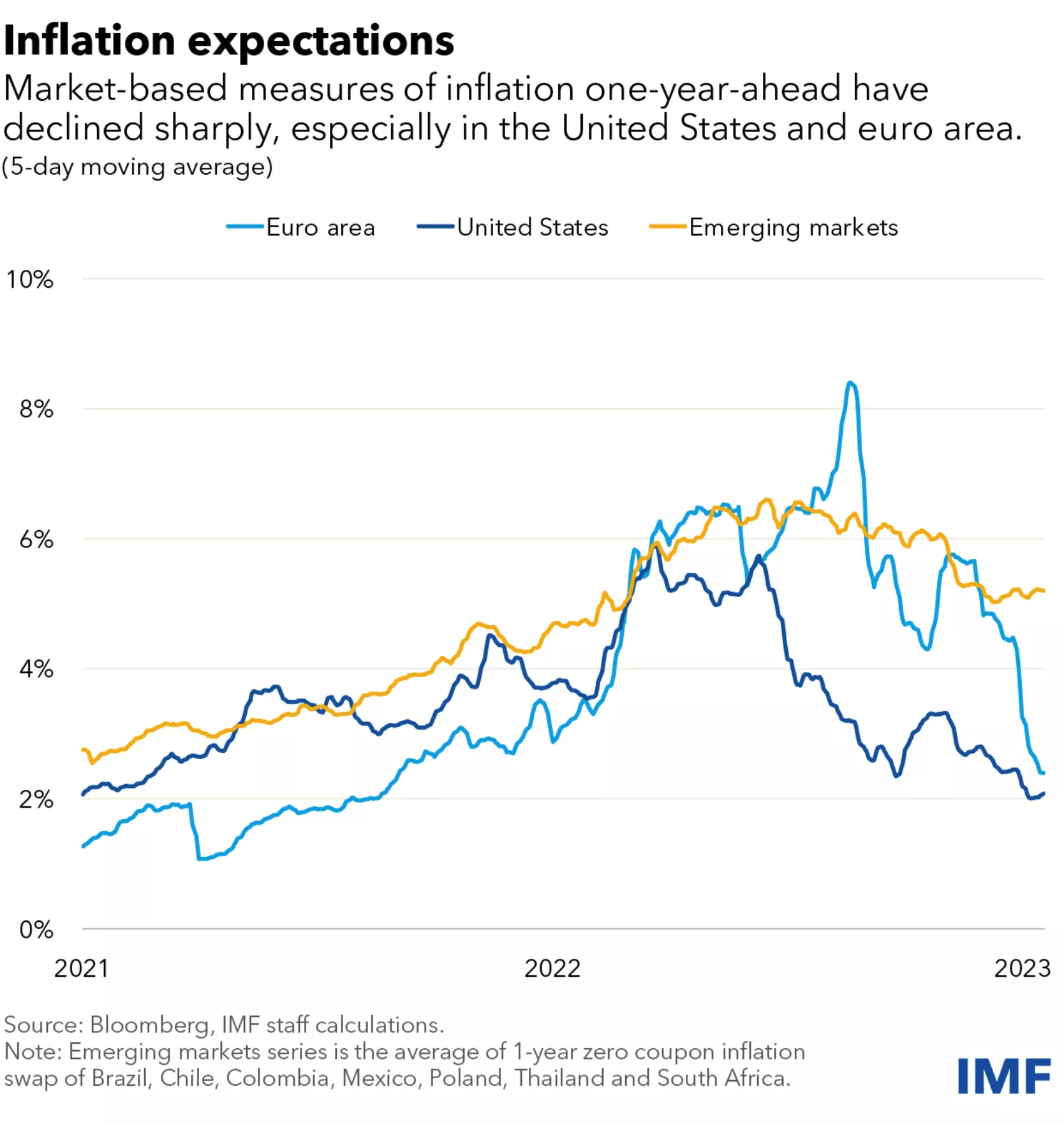Central Banks Face A Conundrum
This has caused yields on long-dated government debt to drop below short-dated maturities in many countries.
Central institutions face a conundrum.
Inflation is undoubtedly unusually high at the moment due to a number of unique factors, so it's possible that it will decline more rapidly than expected by policymakers.
Policymakers are left perplexed by the financial conditions' improving during a central bank's tightening cycle.
One the one hand, the financial markets are warning of disinflation.

Until there is concrete proof of a sustained drop in inflation, this risk-management strategy would call for higher-than-normal interest rates.
This could possibly cause equity prices to decline and credit spreads to widen.
History demonstrates that high inflation is frequently enduring and may even ratchet up further in the absence of strong and decisive monetary policy measures to curb it.
While the inflation rate for goods has decreased, it appears unlikely that the same will occur for services without a substantial cooling of the labor market. Importantly, central banks must avoid misreading sharp drops in goods prices and loosening monetary policy prior to a pronounced moderation in services inflation and wages, which adjust more slowly.
Maintaining higher interest rates for an extended period of time until there is proof that inflation, including wages and service prices, has sustainably decreased is the goal.
As unemployment increases and inflation continues to decline, policymakers will likely come under pressure to loosen regulations.
More By This Author:
Utilizing The Dynamic Wave-Trend Approach With The Vanguard Growth ETF… A Surprising Advantage
Fixed Income Looks Appealing
Momentum, A Robust Hard To Overlook Factor
Disclaimer: These illustrations are not a solicitation to buy or sell any ETF. I am not an investment advisor/broker



